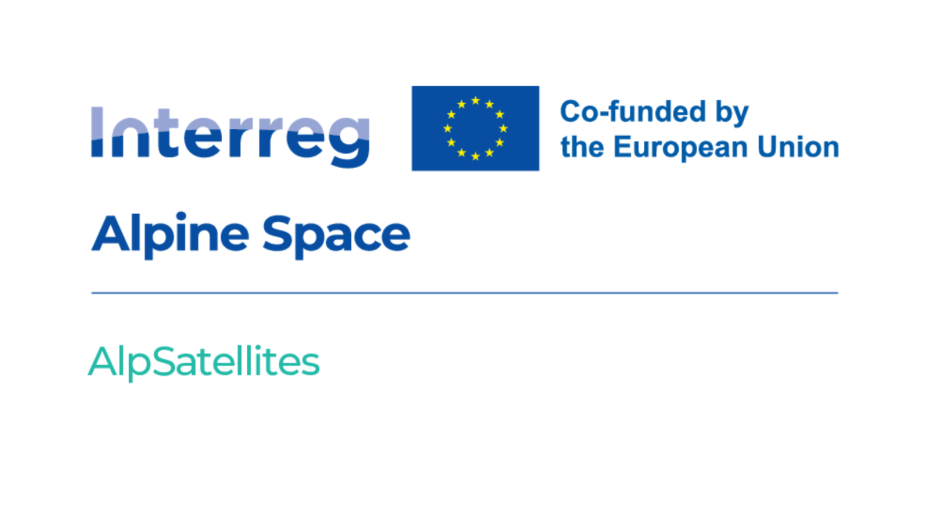
Aix-Marseille Université joined the Interreg Alpine Space project "AlpSatellites". This project is co-funded by the European Union through the Interreg Alpine Space programme. ERDF co-funding € 506.025,48.
What is AlpSatellites?
It is a project aiming at fostering the settlement of new residents and digital nomads in the rural and mountain areas by analysing the opportunities and barriers of remote and co-working. AlpSatellites is designed to prepare a shift to digital workplaces and telecommuting in the Alps. The project wants to explore remote and co-working solutions to mitigate negative demographic trends by attracting new residents and by supporting them in settling down.
Who are the other project partners?
The partnership consists of six partners that are: l’Unité des Communes valdôtaines Evançon (Valle d'Aosta - Italy), the Association Culturelle, Sociale et Sportive du Queyras (France), the Municipality of Gemeinde Doren in Austria, and three academic partners (University of Valle d'Aosta, Aix-Marseille Université and FHV University).
How do we work with the other AlpSatellites partners?
With the other partners we want to explore both the opportunities and the boundaries of remote working.
The Unité des Communes valdôtaines Evançon, the Pays du Grand Briançonnais, des Ecrins and du Guillestrois/Queyras and the Municipality of Gemeinde Doren share a rural/mountain landscape, a careful management of ecosystems and a strong cultural identity. Instead of just reacting to changes like those arising from the Coronavirus pandemic, these communities want to shape those changes by creating new opportunities in the digital, economic, and social fields.
University of Valle d'Aosta, Aix-Marseille University and FHV University will help the three target territories to carry out these goals by combining scientific research with co-creation. A comparative analysis of the target territories’ level of readiness for telecommuting is combined with collaboration with local stakeholders in designing the best solutions to attract and integrate remote workers.
The feasibility, scalability and impact of these solutions are then assessed through transnational cooperation.
How does AlpSatellites contribute to broader strategies and policies?
The project will contribute to Eusalp by supporting policymakers and local communities in enhancing conditions for remote working as a way of improving the attractiveness of the territories. In particular, AlpSatellites will contribute to the work of the Action Groups 2, 3 and 5 on economic development, labour market, and connectivity in the Alpine Areas.
AlpSatellites contributes also to the European Green Deal and its target of making EU climate neutral by 2050. The achievement of this goal requires a cut 90% of emissions from transport by 2050.
Working remotely might reduce emissions and might increase the use of light and green means of transport for short trips.
Laboratories involved:
- Center for Research on Transportation and Logistics (CRET-LOG)
- Laboratory of Economics and Sociology of Work (LEST)
--------------------------------------------------
Latest project news:
- December 2022 - AlpSatellites: first transnational meeting
- January 2023 - AlpSatellites: meet the 6 partners!
- January 2023 - First project newsletter
- February 2023 - AlpSatellites: first workshops with local stakeholders
- March 2023 - AlpSatellites: overview of the March 2023 workshops
- April 2023 - AlpSatellites: cocreation workshops
- May 2023 - AlpSatellites: survey on teleworking opportunites in remote alpine areas
- June 2023 - AlpSatellites : second project newsletter
- August 2023 - Along the AlpSatellites’ Journey
- September 2023 - AlpSatellites: unlocking remote working in the Alpine region
- October 2023 - Third project newsletter
- November 2023 - AlpSatellites - Remote work in the Alps: Readiness, opportunities and barriers
- December 2023 - AlpSatellites - Teleworking in the Alps: sustainable solutions designed collectively
- January 2024 - AlpSatellites: coworking regulations in Italy, Austria and France


